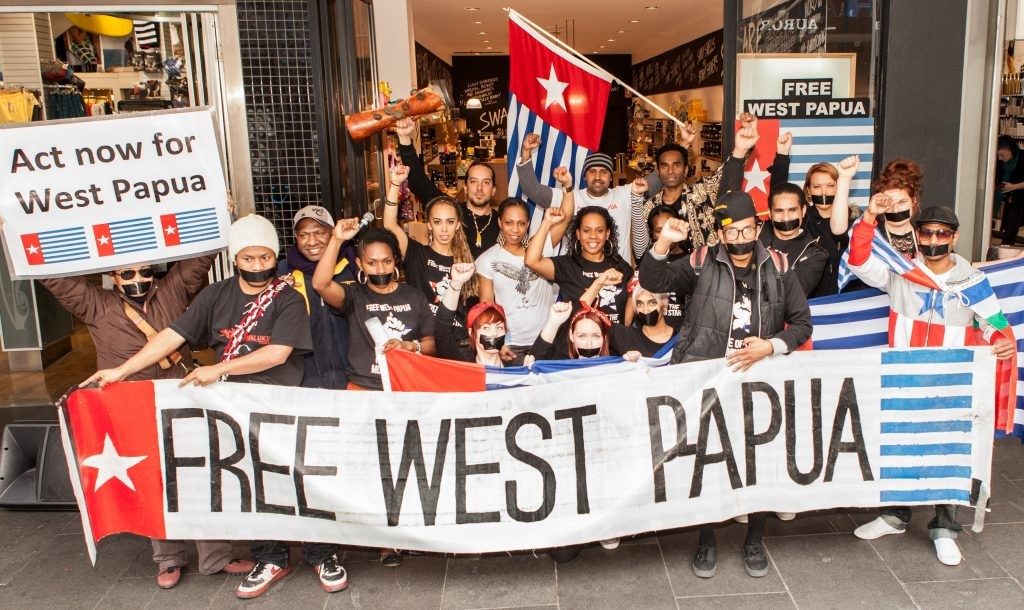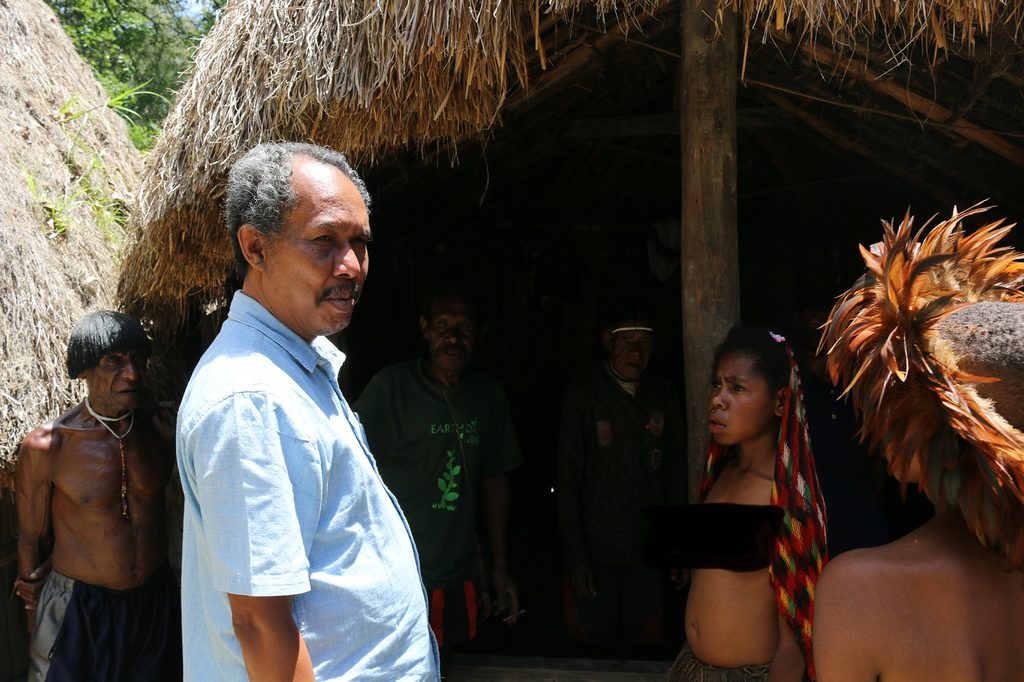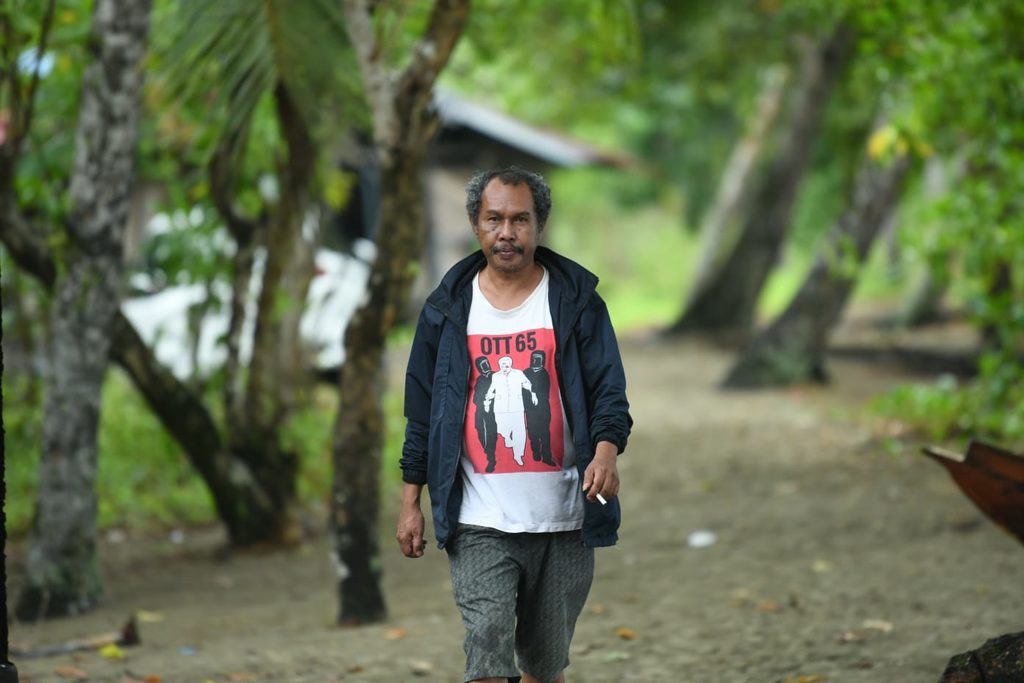When an explosive device detonated outside Victor Mambor’s home in Jayapura in 2023, it delivered a chilling but familiar message.
It was not the first time the West Papuan journalist’s life had been threatened for his work, and it likely would not be the last.
For nearly three decades, Mambor has used his pen, his voice, and his media platform to tell stories that many would prefer remain untold.
Founder and Editor-in-Chief of Jubi Media, one of West Papua’s leading news outlets, he has endured bombings, vandalism, cyberattacks, and relentless harassment, all in pursuit of one mission, to give voice to his people.
“I was scared the first time I received a direct threat,” he recalled.
“But over time, it became almost like music to me. It pushed me to do more. West Papua is my land, and my people are suffering. I cannot stop.”
A father’s influence, a different path
Born in Sumatra in 1974, Mambor was the son of poet John Simon Mambor and Rachmawati Saibuna.
As a child, he dreamt of becoming a footballer. But as the political situation in West Papua deteriorated, and as his father became a freedom fighter and later a leader of the Papua Presidium Council, Mambor’s destiny shifted.
His father died as a political prisoner in Jakarta in 2003, and while Mambor chose not to take up arms he instead wields what he calls “the mightier weapon” of journalism.
“Good journalism makes a society better,” he said.
“That’s what I strive for.”
Bearing witness amid danger
Mambor has faced intimidation for years, but the threats escalated as his media network expanded to include Jubi TV and an English-language news site.
His reporting on human rights abuses and military violence has frequently angered Indonesian authorities and security forces.
In 2021, his car was vandalised. In 2022, his X (formerly known as Twitter) account was hacked and deleted after he shared footage allegedly showing soldiers abusing a disabled civilian. Then, in January 2023, the bomb exploded outside his house, an attack described by human rights defenders as an act of terror meant to silence him.
Still, he presses on.
“Of course, I am human and I worry about my safety. But when threats come my way, I only become stronger and braver,” he said.
Amplifying West Papua’s struggle
Last month, Mambor brought his story to Fiji, screening Jubi Media’s documentary Pepera 1969: A Democratic Integration? at the University of the South Pacific.
The film examines the controversial “Act of Free Choice” which was the 1969 United Nations vote that led to West Papua’s incorporation into Indonesia, long denounced by Papuans as a sham.
The screening, organised with USP Journalism and the Pacific Network on Globalisation (PANG), was part of Mambor’s effort to build solidarity in the region.
He praised Fiji’s civil society for its consistent advocacy but called on Pacific governments to do more.
“We are rightly concerned about Gaza and Palestine,” he told The Fiji Times.
“But right here, in our region, this struggle for West Papua’s independence has been raging for over 50 years. You talk of the Ocean of Peace, which we support, but your Melanesian brother is suffering. We need your support now more than ever.”
Civil society raises its voice
His call comes as Pacific civil society organisations intensify pressure on the Pacific Islands Forum (PIF).
In an open letter addressed to the Forum leaders, NGOs warned of a worsening humanitarian crisis in West Papua, with more than 100,000 people now displaced by ongoing violence.
They urged Forum leaders to revive commitments to a UN human rights mission, launch a fact-finding delegation, and mobilise urgent humanitarian aid.
“This is not a remote crisis; it is a Pacific crisis,” the letter stated.
“West Papuans are part of our Melanesian family. Action has been lacking. Now is the time for courage, unity, and decisive leadership.”
The fight continues
For Mambor, while the struggle is personal it is also universal.
His award-winning work with outlets such as Al Jazeera and the Jakarta Post has brought international recognition, but it is the stories of ordinary Papuans that drive him.
“Despite them bombing my home and office with molotov bombs, I am still doing journalism today,” he said.
“Because my people are hurting, and I won’t stop.”
As we turn our attention to West Papua, Victor Mambor is living proof and a stark lesson for journalists in Fiji and across the region that sometimes in a conflict, the most powerful weapon is not a gun, but the determination to tell the truth.
Protesters and campaigners calling for West Papuan independence from Indonesia. Picture: NEW MANDALA

Victor on one of his many assignments among the Papuan community. Picture: SUPPLIED



